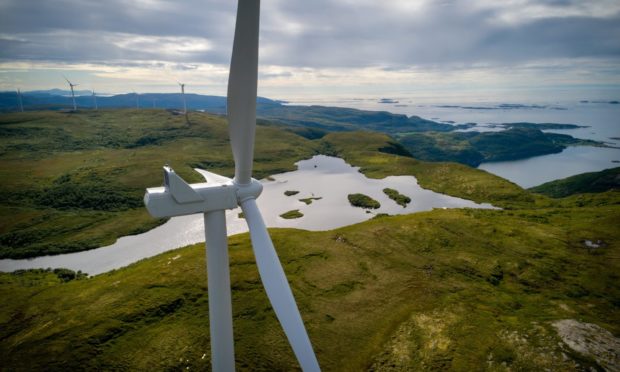Communities in Shetland should be given free energy incentives to address the worst levels of fuel poverty and make up for years of unfair charges, the islands leader claimed.
Councillor Steven Coutts said the proposal would give more back to communities as the country shifts to renewable energy.
It is part of the local authority’s ambitious plans to look beyond the fossil fuel era decades since oil started pumping to Sullom Voe.
Mr Coutts described the need for incentives in an exclusive interview with The Stooshie, the politics podcast from DC Thomson.
He said oil benefited the islands but there were missed opportunities that should not be repeated.
“I think the development of onshore wind, it’s fair to say, is creating tensions in the Shetland community because there are consented projects under way where the community are not seeing that immediate impact at a household level,” he said.
Campaigners across the north of Scotland and islands have long argued for a fairer energy market.
Fuel poverty is higher than the rest of the UK.
Meanwhile, a cost of living crisis is expected to worsen with economic turbulence and the lifting of the energy price cap.
Household bills are expected to soar from April, particularly in areas such as Shetland.
“We do need to acknowledge that Shetland, while it produces oil and gas and energy for the country, it still has one of the highest levels of fuel poverty,” he said.
Mr Coutts took a blueprint for the transformation of energy in Shetland to UK and Scottish government officials and ministers in the past week.
“I think the energy market and some of the regulation around it is clearly not fit for purpose as we shift to net zero,” he continued.
“The provision of free energy is an option which could be explored, particularly in the context of this energy being green. I can understand reservations around that with traditional fossil fuel industry.”
He suggested free energy would be a draw for communities near new onshore wind developments.
“That’s one of the opportunities we’d be very keen to explore,” he told us.
“The community is paying the highest rate for their electricity and that is just not a position that is fair or equitable.”

